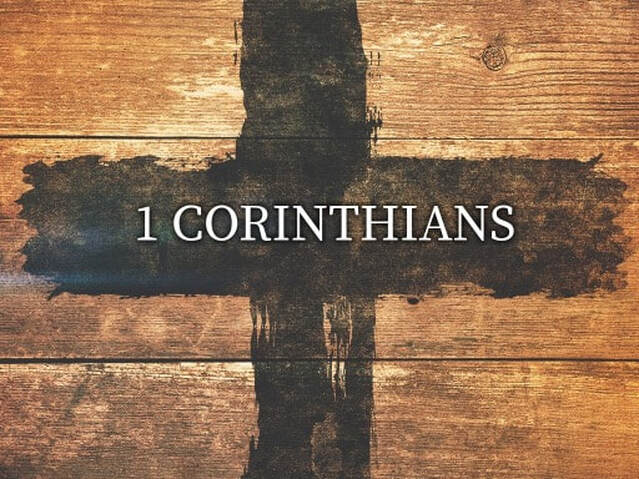Please remember that we are gathering this evening to read through 1 Corinthians 11. As you read through this chapter and the following several chapters, think through what the worship service in this congregation would have been like. Also, notice that both sections of this chapter concerning head coverings and the Lord’s Supper begin with an appeal to the tradition that Paul had handed over to the Corinthians. (Tradition simply means to hand-over or deliver and a person who hands-over or delivers is a “traitor.”) Look at the role of tradition in this chapter in both verses 2 and 23, and the source of the traditions themselves. Why would Paul emphasize that the tradition of the Lord’s Supper originated with Jesus? Within this tradition of the Lord’s Supper, what does Paul say is the purpose of the celebration? Finally, look at the word “often” in verse 26. Within the Anglican tradition, the Books of Common Prayer assume a weekly communion service. But even within more Protestant traditions, both John Calvin and John Wesley required weekly communion of their followers (although both of their descendant denominations have strayed from this teaching.) In the Institutes, Bk 4, Ch. 17, §44, Calvin says “Thus we ought always to provide that no meeting of the Church is held without the word, prayer, the dispensation of the Supper, and alms.” Likewise, in his sermon entitled The Duty of Constant Communion, Wesley teaches that it is the “duty of every Christian to receive the Lord’s Supper as often as he can” and that the Church must “take all possible care that the sacrament be duly administered, wherever the Common Prayer is read, every Sunday and holiday in the year.”
As we look at different ways of reading through the Scriptures, we’ll find that there are various interpretations of the same passages. In his Confessions, Augustine becomes overcome with the various alternative interpretations given to the first paragraphs of Genesis and he struggles with which one is correct. As we have looked at already, two of his guidelines in interpreting the Bible are to approach any interpretation with humility but also to avoid any nonsensical readings. Within his struggle with scriptural interpretation, Augustine concludes his discussion with the idea that all of Scripture and any reading we would give to a particular passage must be ordered by the two great precepts of love of God and love of neighbor “for otherwise we make God a liar.” Bk. 12, Ch. For as Jesus teaches, all of Scripture rests upon the two great commandments to Love the Lord your God with all your heart, all with all your soul, and with all your mind, and to love your neighbor as yourself. Matt. 22:24-40. In his later work, On Christian Doctrine, Augustine writes that “Whoever, then, thinks that he understands the Holy Scriptures, or any part of them, but puts such an interpretation upon them as does not tend to build up this twofold love of God and our neighbor, does not yet understand them as he ought.” Bk 1, Ch. 36. Augustine goes on to say that even if “a man draws a meaning from [the Scriptures] that may be used for the building up of love, even though he does not happen upon the precise meaning which the author whom he reads intended to express in that place, his error is not pernicious.” In other words, if we interpret the Scriptures incorrectly but in love, we may be mistaken but we’re not wrong. So as we read through the Scriptures, we should always read them in love.
Dinner is at 6. The menu is Bratwurst and Italian Sausage. Please bring a friend. Hope to see you here.
For I received from the Lord that which I also delivered to you, that the Lord Jesus in the night in which He was betrayed took bread; and when He had given thanks, He broke it and said, “This is My body, which is for you; do this in remembrance of Me.” In the same way He took the cup also after supper, saying, “This cup is the new covenant in My blood; do this, as often as you drink it, in remembrance of Me.” For as often as you eat this bread and drink the cup, you proclaim the Lord’s death until He comes.
1 Corinthians 11:23-26

